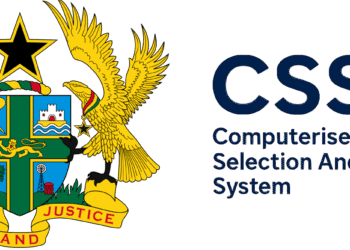The National Service Authority (NSA) has issued a firm ultimatum to all National Service Personnel found to be in full-time employment while undertaking their mandatory service.
The Authority says anyone implicated must report to its regional or head office to regularize their status or face severe penalties. The directive follows the submission of enrollment data to the Controller and Accountant General’s Department.
“This exercise is aimed at identifying individuals who are unlawfully drawing dual income from both their employment and national service allowance in violation of the National Service Authority Act, 2024 (Act 1119)”
National Service Authority
The datasets, which cover General Enrolment for 2024/2025 and both Nurses and Teachers Enrolment for 2025/2026, are currently being matched against public sector payroll systems.
According to the NSA, the verification is a statutory obligation aimed at uncovering personnel unlawfully drawing both a salary and a national service allowance. The Authority emphasized that this practice contravenes Act 1119, which governs all matters related to national service, including eligibility, remuneration, and ethics of conduct.
Officials say this move is critical for safeguarding the integrity of the national service programme, which is designed as a transitional pathway for graduates into professional life, not a means to exploit state resources.

Deadline for Compliance
Service personnel who find themselves in this category have until Friday, 23rd May 2025 to report voluntarily and correct their status, after which appropriate measures would be enforced against defaulters.
“After this deadline, any individual found to have engaged in such fraudulent conduct will be subjected to strict administrative sanctions, including immediate deletion from the national service payroll, referral for prosecution, and permanent disqualification from future public service engagement”
National Service Authority
The Authority stressed that once the deadline lapses, no leniency will be granted. Affected individuals risk losing all current allowances and any future opportunities in the public sector. In some cases, especially where evidence of deliberate concealment or falsification of records exists, referral for criminal prosecution will follow.
The enforcement comes at a time when the government has vowed to clamp down on systemic inefficiencies and corruption in public institutions. The NSA’s directive aligns with that national agenda, highlighting a renewed emphasis on accountability and transparency in civil service and its affiliate programmes.
The action is expected to send a strong message across the public sector that dual-income abuse will no longer be tolerated. The exercise also underscores the President’s broader commitment to public sector reform, particularly in areas of payroll auditing and recruitment integrity.

The NSA noted that, “We urge all affected personnel to take advantage of this window to correct their records and avoid the full consequences of the law.”
Service Reform
As the matching and verification processes intensify, the Authority said it will continue to collaborate with other oversight bodies to ensure that loopholes are permanently closed.
The National Service Secretariat has previously come under criticism for inadequate data control, but recent reforms under Act 1119 have granted it new authority and enforcement capacity.
“The Ghana National Service Authority remains committed to integrity, accountability, and transparency in national service administration”
National Service Authority
The GNSA is urging all affected individuals to avoid resistance or delay. Personnel who voluntarily report before the deadline will be assisted in correcting their records, while those who attempt to evade detection will face the full force of the law.
With the full backing of the Controller and Accountant General’s Department, the directive marks a new chapter in the enforcement of ethical standards in Ghana’s public service.
READ MORE: Finance Minister Touts Fiscal Discipline, Goldbod’s Role in Driving Economic Stability



















